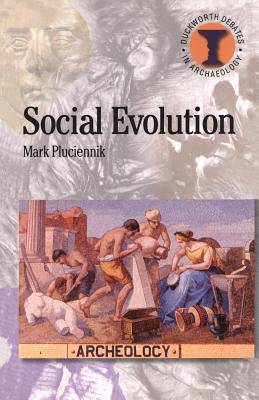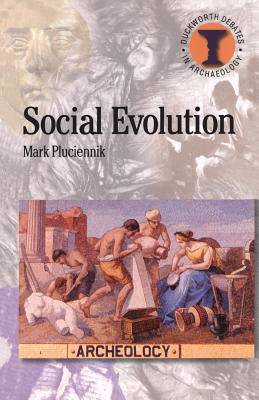
Bedankt voor het vertrouwen het afgelopen jaar! Om jou te bedanken bieden we GRATIS verzending (in België) aan op alles gedurende de hele maand januari.
- Afhalen na 1 uur in een winkel met voorraad
- In januari gratis thuislevering in België
- Ruim aanbod met 7 miljoen producten
Bedankt voor het vertrouwen het afgelopen jaar! Om jou te bedanken bieden we GRATIS verzending (in België) aan op alles gedurende de hele maand januari.
- Afhalen na 1 uur in een winkel met voorraad
- In januari gratis thuislevering in België
- Ruim aanbod met 7 miljoen producten
Zoeken
Omschrijving
The concept of social evolution in its modern form became widespread 250 years ago as part of the Enlightenment, and yet it still structures the thinking of academics, politicians and the public in a myriad ways. Hunter-gatherers become the repository of the natural or primitive; civilisation and 'our' history is deemed to begin with farming societies; and state societies are seen as the only gateway to social complexity. Through a historical and comparative review, this book challenges the idea that social evolution and the inevitability of progress is self-evident, and examines the connections of progressive social evolution with various ideologies and projects, from emancipation to racism, colonialism and imperialism and contemporary ideas of the new world order. Mark Pluciennik suggests that taking a critical stance allows other ways of thinking about and writing history to come into better focus, enabling us to ask different kinds of questions about the nature of change in human societies, and to treat social evolution in a more nuanced way.
Specificaties
Betrokkenen
- Auteur(s):
- Uitgeverij:
Inhoud
- Aantal bladzijden:
- 144
- Taal:
- Engels
- Reeks:
Eigenschappen
- Productcode (EAN):
- 9780715632871
- Verschijningsdatum:
- 27/05/2005
- Uitvoering:
- Paperback
- Formaat:
- Trade paperback (VS)
- Afmetingen:
- 136 mm x 218 mm
- Gewicht:
- 204 g

Alleen bij Standaard Boekhandel
+ 121 punten op je klantenkaart van Standaard Boekhandel
Beoordelingen
We publiceren alleen reviews die voldoen aan de voorwaarden voor reviews. Bekijk onze voorwaarden voor reviews.









